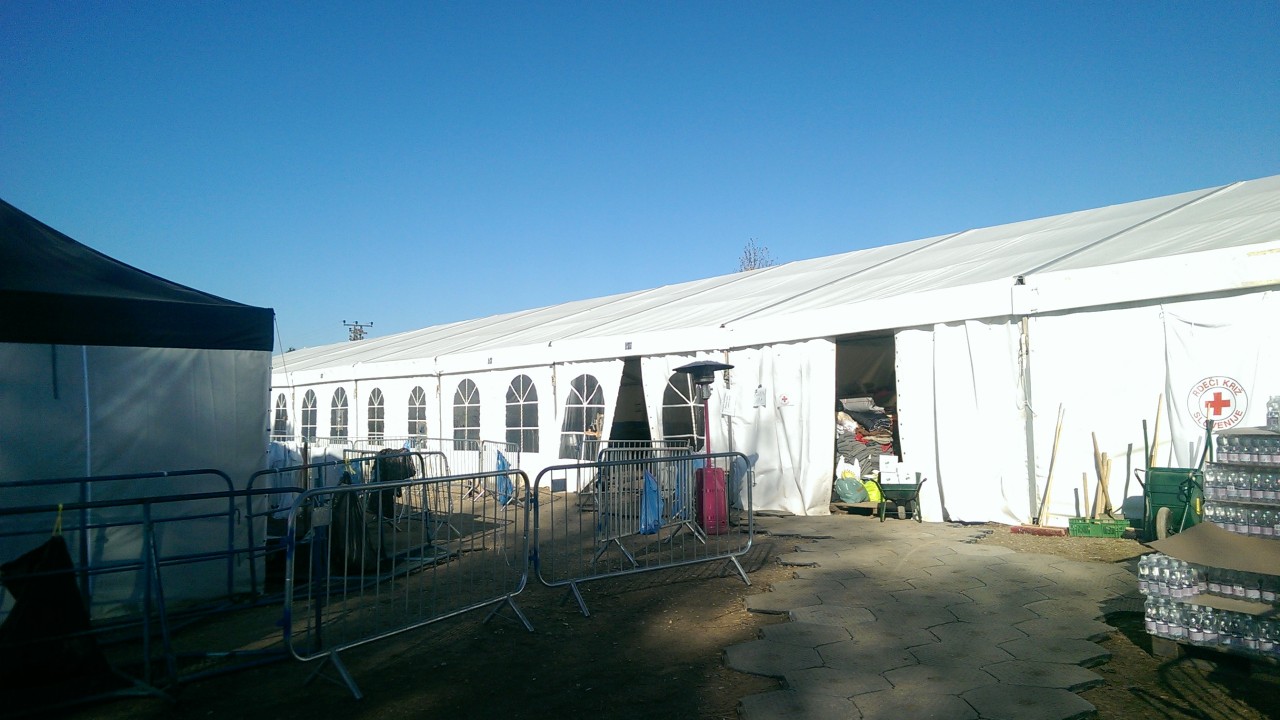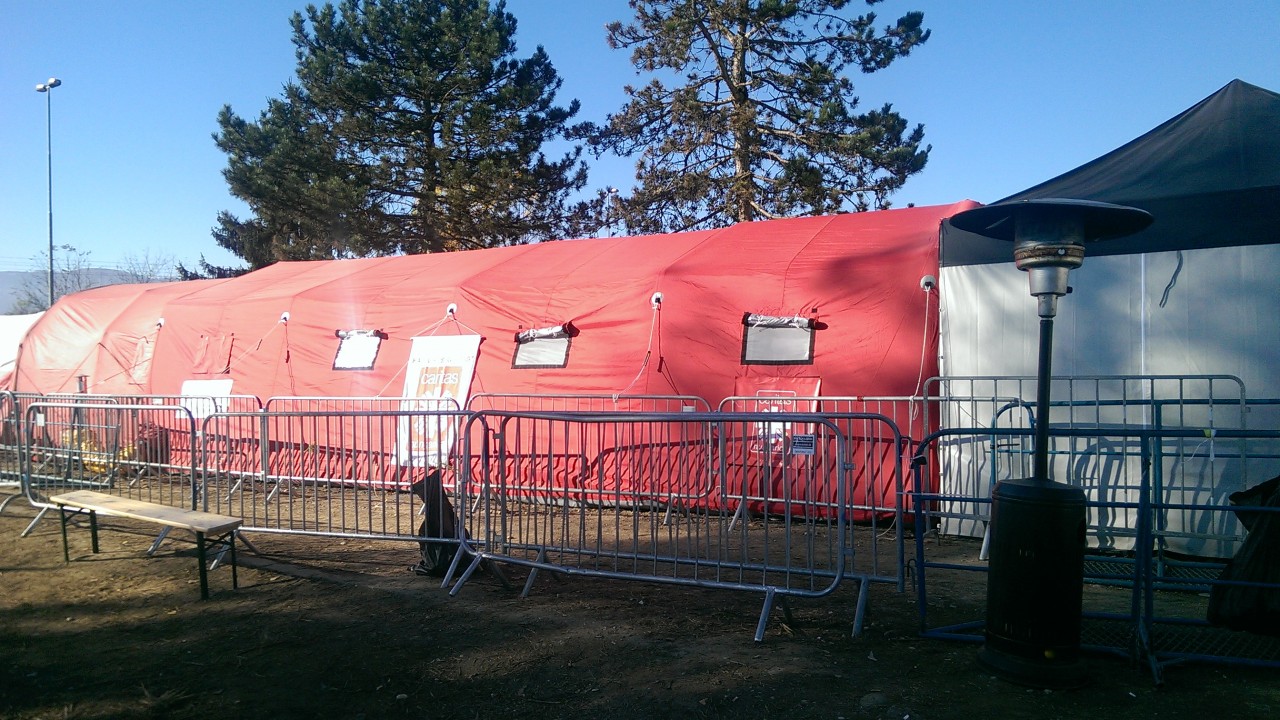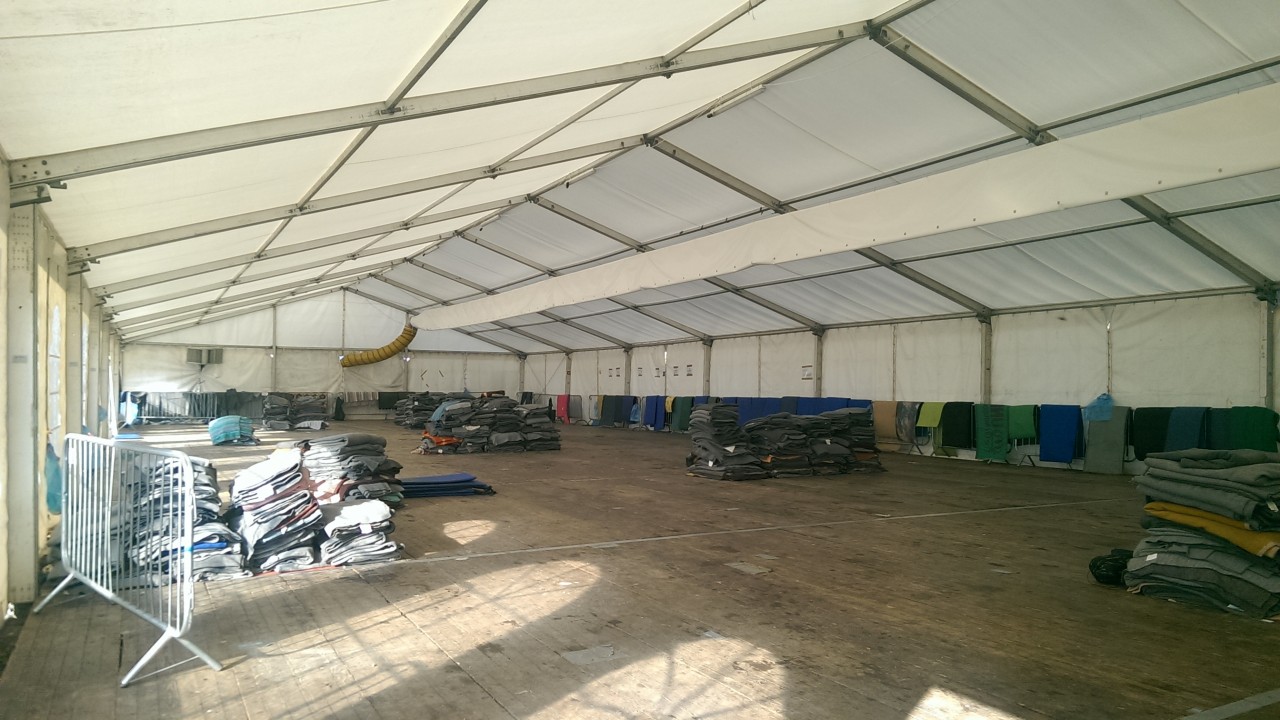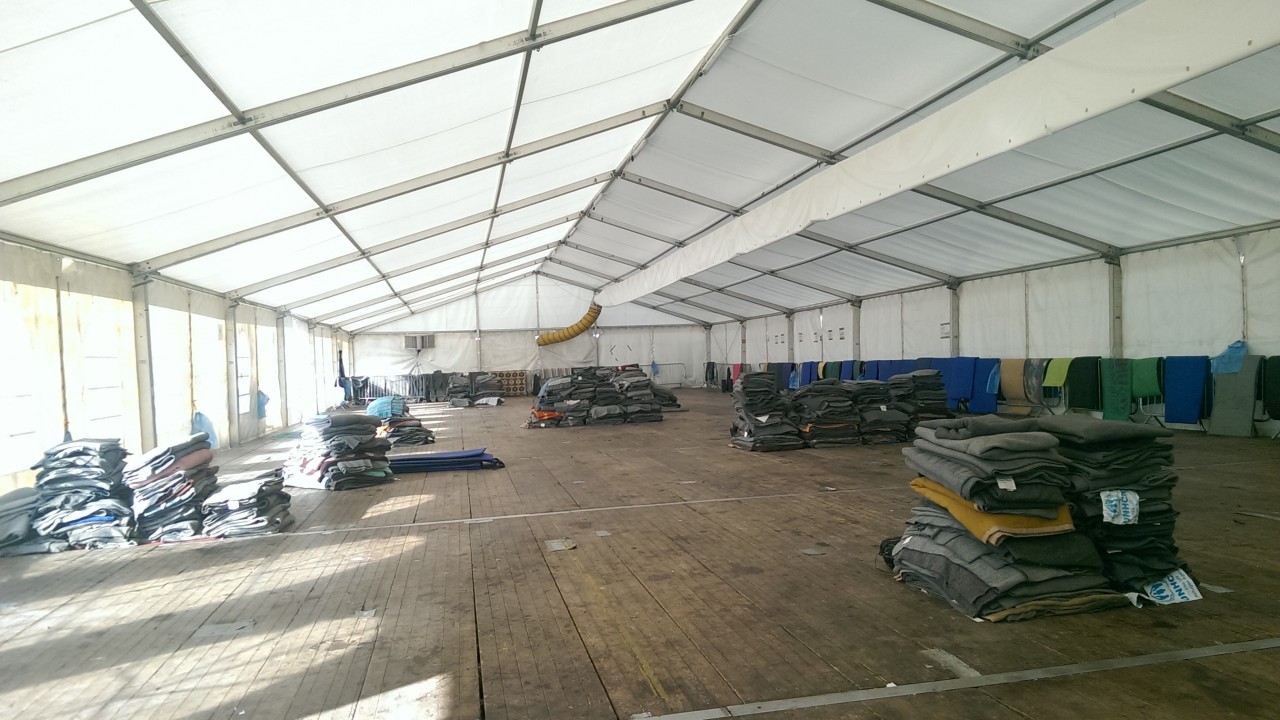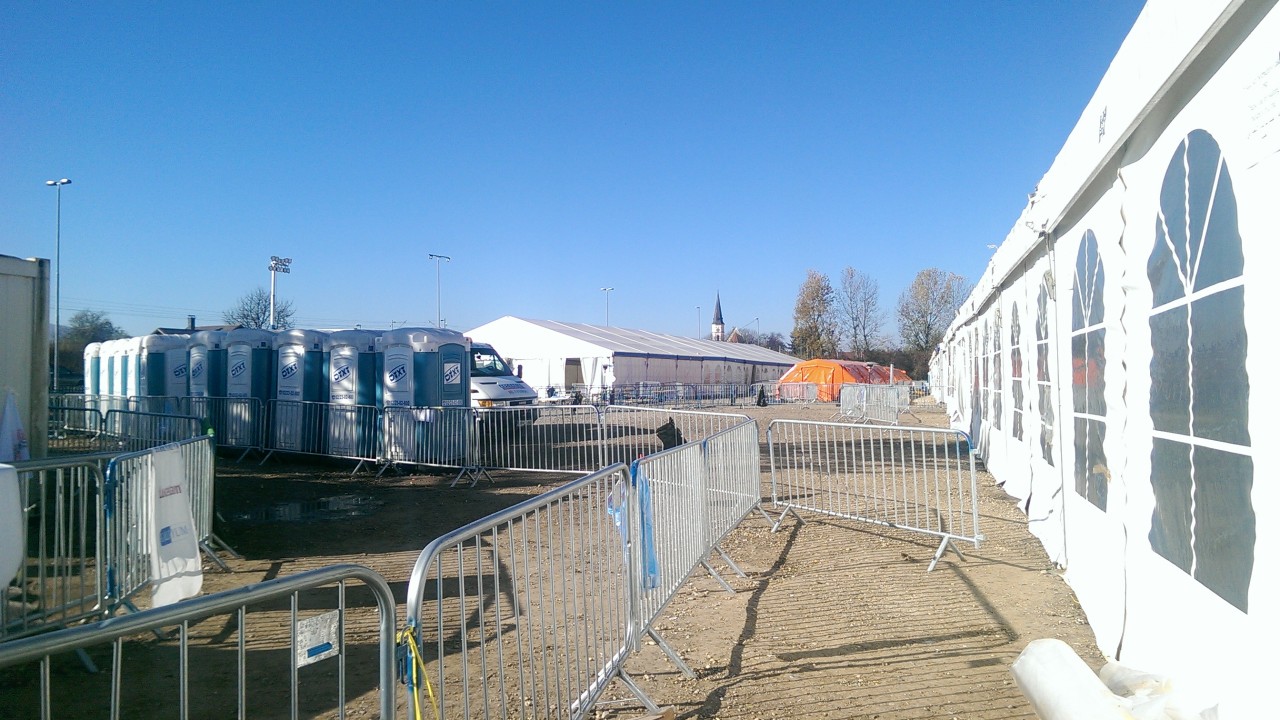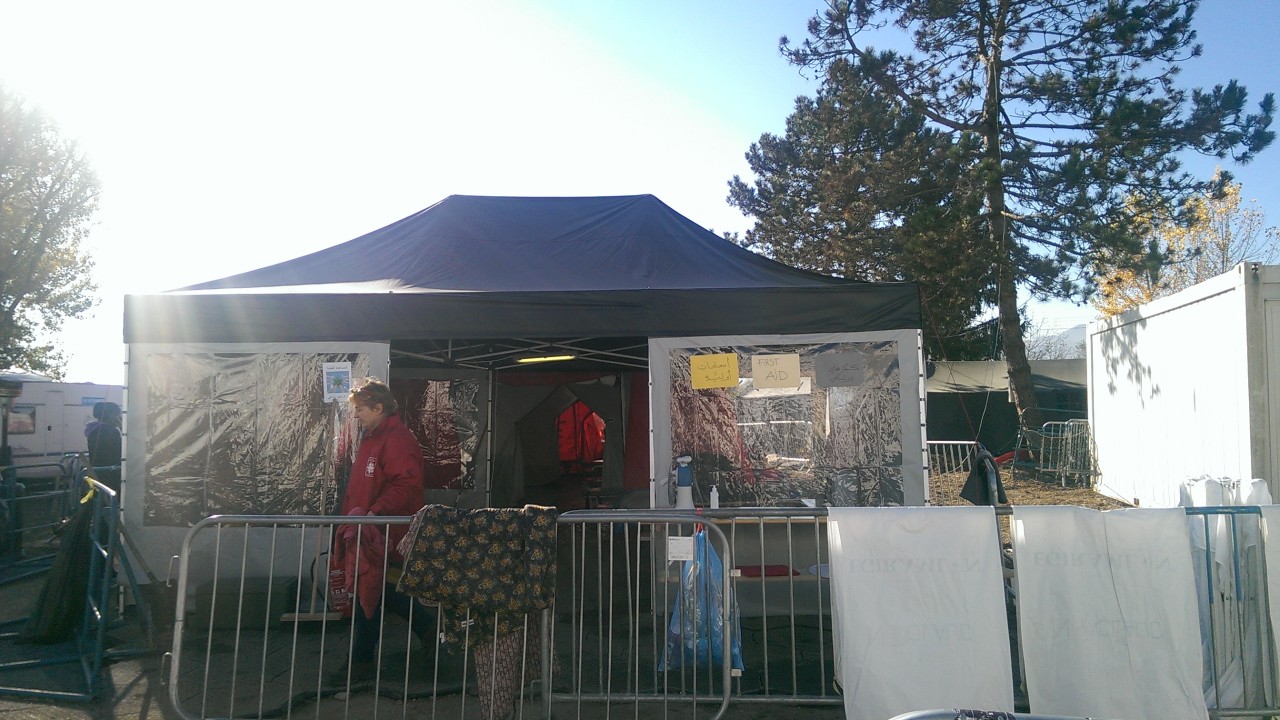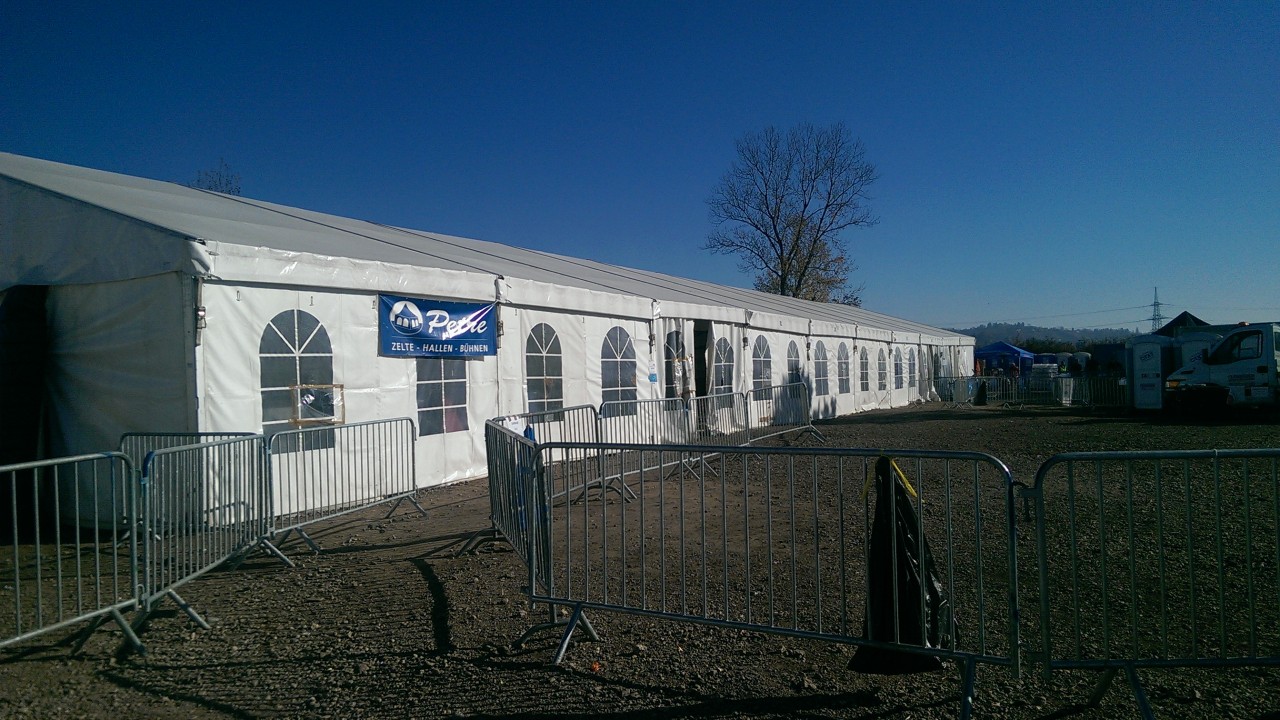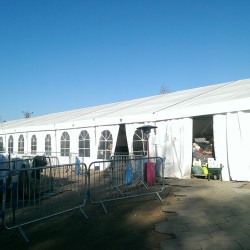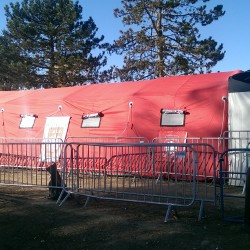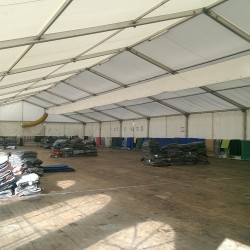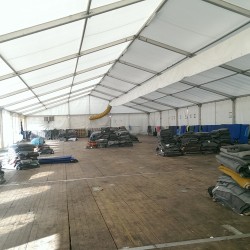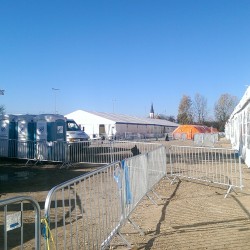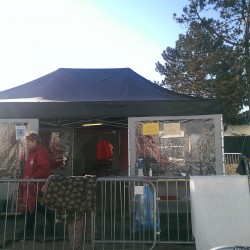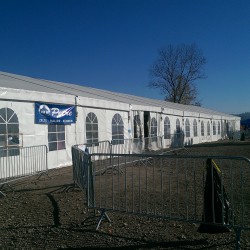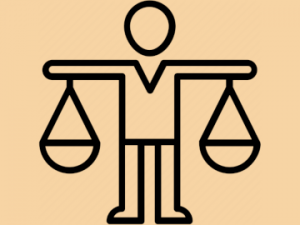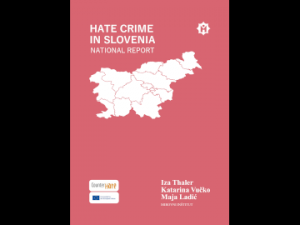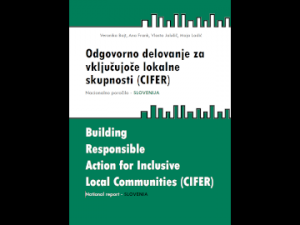Report from Dobova
9. 11. 2015 | Human Rights and Minorities
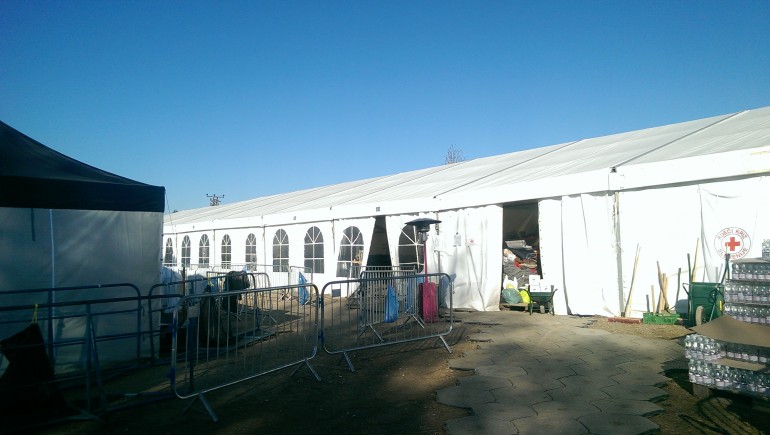
At 8 am the reception centre (Livarna) was empty. There were only those waiting for their family members who were in a hospital. Red Cross volunteers were preparing food, sorting through clothes and cleaning. Everything seemed ready for the arrival of the refugees, which was expected around 11 am. However, there were still no water taps, washbasins or showers available there, for people to wash or at least freshen up, while waiting for departure. We did nonetheless see that they were preparing the area around the centre for the arrival of German Caritas volunteers which will provide washbasins and showers (we heard this from volunteers).
We noticed that there were garbage and food scraps underneath the wooden floor in the tents, which were otherwise cleaned and prepared for the arrival of new groups of refugees. This is problematic not just because of the smell, but also because it could potentially attract pests (like mice and rats).
There were signs in five languages (Persian, i.e. Farsi, Arabic, Urdu and English) at different locations in the centre and at the railway station, which said »Police will register everyone«, »Welcome to Slovenia«, »Transport is free of charge«, »Throw garbage in trash bins«, »Please, keep the area clean«, »Stand in one line«. They later added »Baby changing corner« sign in the reception centre (this is not available at the railway station, as people are merely being transferred from one train to another there).
Around 11 am, train with approximately 1200 people arrived at the railway station; one group was taken to Livarna for registration, some were taken to Petišovci, while others were registered at the train station and continued boarded the next train. Registration at the station took quite a while – from 11 am to 2 pm approximately. The police took everyone’s fingerprints and photographs and issued permissions to remain (dovoljenje za zadrževanje v Sloveniji za obdobje 6 mesecev). There were quite some cases of separated families and searching for the lost family members. During the registration, i.e. the security check, police sent women and children in one line and men in another, so they did not come out of the building at the same time; some were already on the next train, while others were still being registered or ended up on the other side of the station searching for each other. People were sent to board the train which was headed to Jesenice, but it got full (only 560 people could go to Jesenice). There was already the second train people started boarding at the station, but it was headed for Šentilj, so it was necessary to ensure that all family members were on the same train. There was a lot of work regarding this, and also some reluctance among the police.
There were exactly 560 people on the train to Jesenice, as many as could go ahead to Austria, and they held on to this number. However, they allowed for families to unite, as long as we would find a replacement for each person that wanted to switch the train (if a person went off a train, we found another one to replace them, so that the number remained 560). They could have easily avoided these problems, if they had processed family members together at the registration and the security check. The translators had a very important role in searching for family members.
All that were registered at the railway station were offered food (pre-packed) and water. Also later, when they were already waiting for the train to continue, they could get water and food, if they had asked for it. In general, clothes were not distributed at the railway station, but the Red Cross had some supplies, so if someone asked for something, they got it (some people did not have jackets, they were wearing only T-shirts, there was a barefoot man, etc.). There were some people at the railway station that needed medical attention. The Red Cross First Aid Team helped them. Some people were visibly very exhausted and were on the edge of their endurance (one man fell asleep at the platform on the floor).
Toilets at the railway station were not adequate – there were few portable toilets, but when the refugees asked, they were told that they can only use those on the trains. We noticed that not all toilets on the train were in use and, at the same time, there were not enough of them. For example, the train had stayed on the platform for 4 hours and during that time people were using the hopper toilets (as opposed to the chemical retention tanks). It is urgent to ensure proper cleaning of the tracks after the departure of each train.
Until 2 pm at the railway station that day, police attitude towards the refugees was proper, occasionally with someone unnecessarily raising voice, and with some reluctance among the police regarding bringing families back together and people switching trains, but in the end, everything was handled in a good manner.
On Saturday, November 7, at the border in Rigonce, police retained a younger man from Afghanistan, who crossed the border on his own. We learned at the police station in Brežice that the Slovenian police handed the man back to the Croatian police and they issued him a fine of 1000 euros for illegal border crossing. They did not issue an entry ban, so it is possible that the man will join a group of refugees in Croatia and come to Dobova with one of the next trains.

